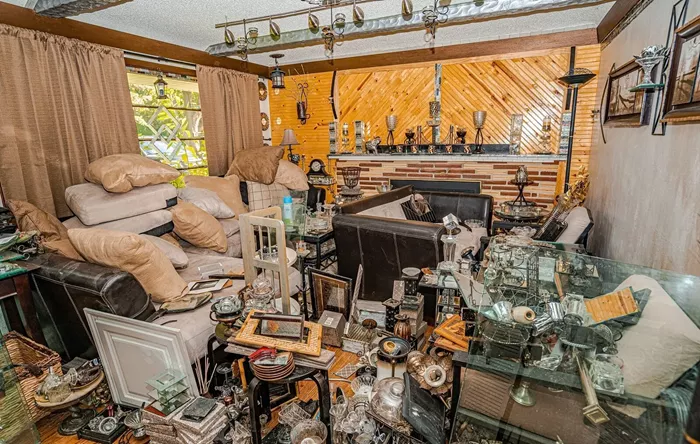Susan Lindo, 59, from Middlesbrough, shares her story of living with hoarding—a condition she once thought was simply laziness. Her home, filled with overflowing shelves, boxes, and bags, even has one bedroom completely blocked by belongings. Each night, she must climb over piles just to reach her bed.
Susan’s perspective changed after a BBC Radio Tees interview, where she learned hoarding is a recognized mental health disorder. This revelation came following warnings from Clouds End CIC in Birmingham, who called hoarding a “mental health emergency” needing urgent attention.
Hoarding often starts early in life. For Susan, it was a learned behavior from her parents, whose own home was similarly cluttered. She admits she never learned basic tidying skills growing up, but her husband Robert helps manage the household chores.
The dangers of hoarding extend beyond clutter. Cleveland Fire Brigade warns that hoarded homes pose serious fire risks, with blocked escape routes and increased fuel for fires. Susan and Robert’s home has only one clear exit, raising concerns about their safety in an emergency.
Professional Support and Practical Steps
Hoarding is linked to anxiety and mental health struggles, often worsened by stressful times like the COVID-19 pandemic. Organizations such as Hoarding Disorders UK and mental health charities like Let’s Connect offer support through counseling, decluttering help, and psychological care.
Rachel Bebbington, a counselor at Let’s Connect, explains that hoarding involves emotional attachments to possessions or fears of losing useful items. It can also overlap with self-neglect and other health issues. Many people feel ashamed or overwhelmed and hesitate to seek help.
Susan is now motivated to tackle her hoarding. After a previous attempt on a TV show, she recognizes the importance of mindset and small, steady progress—spending just 10 minutes at a time decluttering. She regularly donates items to charity, which gives her a sense of purpose.
Her message is clear: hoarding is not a personal failure but a mental health issue. People struggling with it should not be ashamed or afraid to ask for help. Taking small steps today can prevent the problem from becoming unmanageable tomorrow.
Practical Tips for Those Struggling with Hoarding:
- Recognize hoarding as a mental health condition, not laziness.
- Seek professional support from mental health organizations or counselors.
- Start decluttering in small, manageable sessions to avoid feeling overwhelmed.
- Create clear pathways and keep exits accessible for safety.
- Donate unwanted items to charity to find motivation and purpose.
- Understand that change takes time and mindset is key.
If you or someone you know struggles with hoarding, remember help is available, and recovery is possible.


